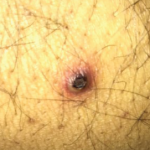NEW YORK (Reuters Health)—Patients with inflammatory bowel disease (IBD) show imbalance in their fungal intestinal microbiota, according to new findings.
“The fungal microbiota is a new actor to take into account in the pathogenesis of IBD and potentially in other diseases,” Dr. Harry Sokol of Hospital Saint-Antoine in Paris, an author of the new study, told Reuters Health in an email. The findings were published online on Feb. 3 in Gut.
Bacterial dysbiosis is known to occur in IBD, with reduced biodiversity, decreases in some Firmicutes bacteria and increases in some types of Proteobacteria, including Escherichia coli, Dr. Sokol and his colleagues note in their report. Two molecules involved in innate immunity to fungi, Card9 and Dectin1, have been shown to affect susceptibility to intestinal inflammation in mice, they add.
To determine whether IBD patients might also show differences in their fungal microbiota, Dr. Sokol and colleagues looked at the bacterial and fungal composition of fecal microbiota in 235 IBD patients and 38 healthy controls.
IBD patients had an increased ratio of Basidiomycota to Ascomycota, the researchers found. They also had higher levels of pro-inflammatory fungi, such as Candida albicans, and lower levels of anti-inflammatory fungi, such as Saccharomyces cerevisiae.
Patients with Chrohn’s disease (CD) had decreased involvement of the Basidiomycota phylum, especially unidentified Malasseziales, compared to healthy subjects, while this involvement was increased in ulcerative colitis (UC) patients compared with controls.
“The concomitant analysis of the bacterial microbiota in the same subjects allowed us to point out many correlations between bacterial and fungal components with differences between IBD and healthy subjects, suggesting the existence of disease-specific inter-kingdom alterations,” Dr. Sokol said.
“Moreover, we identified specific alterations in Crohn’s disease and ulcerative colitis,” he added. “Finally, although our study was not of sufficient power to statistically demonstrate an association between genotype and fungal microbiota, we identified some trends suggesting that genetic polymorphisms associated with IBD or IBD severity may influence fungal microbiota dysbiosis.”
The findings suggest that the fungal microbiome could be a target for treating IBD, Dr. Sokol said. “We can imagine targeting pro-inflammatory fungi and/or supplementing patients with anti-inflammatory ones in order to restore the balance in the gut,” he added.
“The next steps are to experimentally understand the effect of fungal components of the microbiota on the host and also the dialog with bacteria within the gut,” Dr. Sokol said. “This would help defining an appropriate therapeutic strategy targeting the fungal microbiota.”


